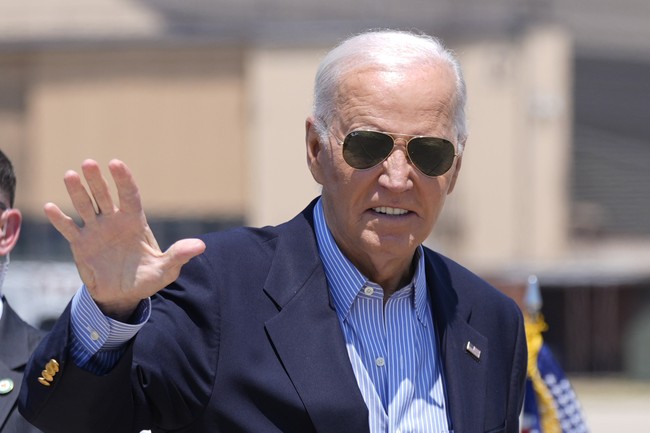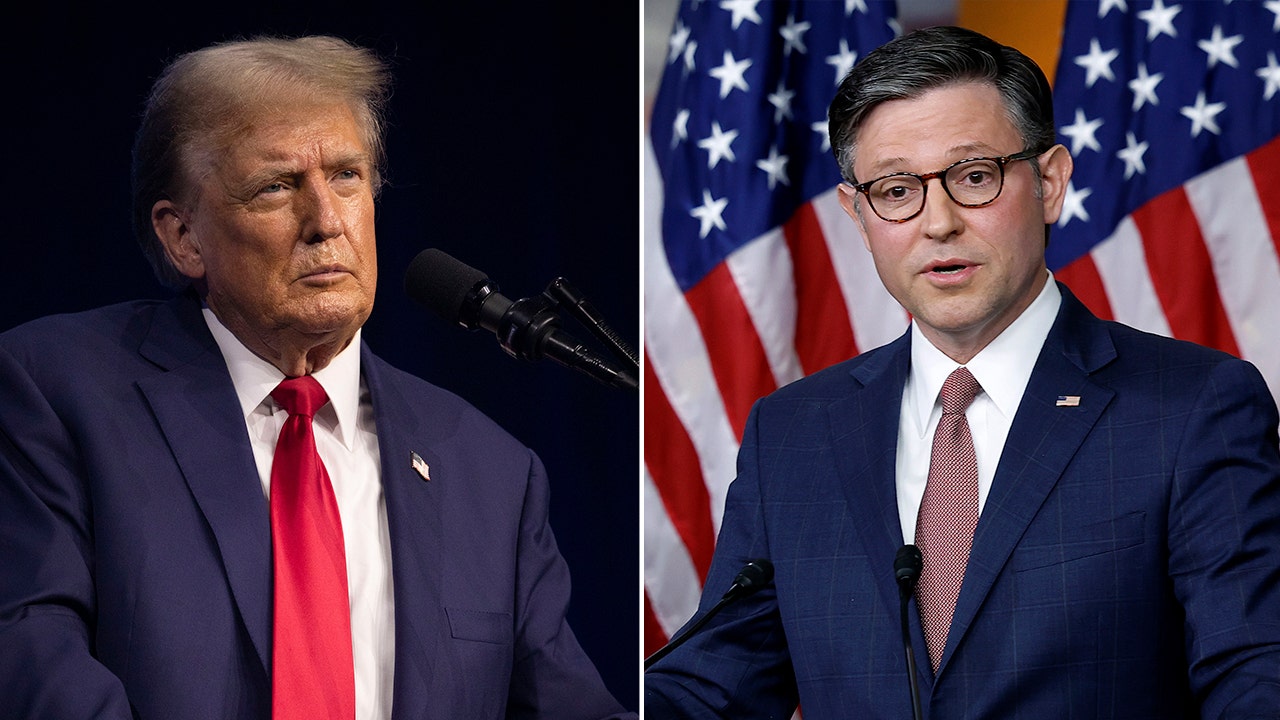The Conservative rebellion has come for Boris Johnson.
The United Kingdom prime minister’s position looks increasingly in peril, as Johnson faces dozens of resignations from his government, including two high-profile cabinet ministers.
The resignations arrive about a month after Johnson survived a no-confidence vote among his fellow Conservative members of Parliament, which followed months of allegations including that he lied about parties hosted at his Downing Street offices during the worst of the Covid-19 crisis. Johnson held on to his job, but the margin was slim enough to leave him politically weakened. Some ultimately interpreted it as the start of a downfall for the once-dominant politician.
That downfall may now be here.
It is looking increasingly unlikely Johnson can withstand this onslaught of resignations, prompted by yet another scandal. This latest scandal involves the Conservative deputy chief whip, Chris Pincher, who was forced to resign last week amid allegations he got drunk at a private club and groped two men. That might have been the end of it, but the debacle resurfaced other allegations of sexual misconduct against Pincher, including one from 2019, when Pincher served in the foreign office. This immediately raised questions about what, exactly, Johnson knew — and whether he promoted Pincher, a Johnson loyalist, to deputy chief whip in spite of those accusations. At first, No. 10 Downing Street largely hewed to the line that Johnson didn’t recall, until that story fell apart and officials confirmed that Johnson was, in fact, aware of some of the allegations against Pincher.
Johnson apologized Tuesday for appointing Pincher, saying it was a “mistake,” in hindsight, to name him deputy chief whip. But it looks to have been too little too late. On Tuesday evening, two of Johnson’s top senior officials, finance minister Rishi Sunak and health secretary Sajid Javid, both resigned from the cabinet, calling Johnson’s integrity into question. Their move set off the slew of resignations happening now — more than 35 as of Wednesday, with possibly more to come.
Both Javid and Sunak are major figures in the Conservative Party who may have their own designs on leadership, so their departures were already going to be hard to overcome. Johnson, of course, replaced those ministers. But British media is reporting that some of Johnson’s top cabinet officials are currently mobilizing to convince the prime minister that it’s time to go.
The public rightly expect government to be conducted properly, competently and seriously.
I recognise this may be my last ministerial job, but I believe these standards are worth fighting for and that is why I am resigning.
My letter to the Prime Minister below. pic.twitter.com/vZ1APB1ik1
— Rishi Sunak (@RishiSunak) July 5, 2022
I have spoken to the Prime Minister to tender my resignation as Secretary of State for Health & Social Care.
It has been an enormous privilege to serve in this role, but I regret that I can no longer continue in good conscience. pic.twitter.com/d5RBFGPqXp
— Sajid Javid (@sajidjavid) July 5, 2022
Whether Johnson will willingly resign or fight to keep his position is still the biggest question. Though Johnson survived the no-confidence vote in June, those early revolts are usually a sign that the party has soured on their leader. Past Conservative prime ministers, including Theresa May, also survived no-confidence votes, only to resign or be forced out sooner rather than later.
Johnson technically can’t face another such vote for another year — though the rules could be changed, and this is likely one of the threats hanging over Johnson right now. As of Wednesday, the 1922 Committee, which oversees the Conservatives in Parliament, has declined to change those rules, but it’s having its own committee elections right now, and after that, could revisit those rules.
And if Johnson lasts that long in power, he may face an even more decisive rebellion.
Johnson may finally be facing the end of his premiership. It’s a wild turn.
In 2019, Boris Johnson, the former London mayor and Brexit rabble-rouser, led the Conservatives to a historic victory on the promise to “get Brexit done.” Johnson’s massive 80-seat majority in Parliament — won, in part, by securing seats that were once Labour strongholds — made it seem as if Johnson, and his version of the Conservative Party, would be in power for a long, long time. Or, at the very least, until the next election around 2024.
That is not exactly how things turned out. Johnson got Brexit done, at least in the sense that the UK left the European Union, but his deal left many, many loose ends that are still unresolved. The coronavirus pandemic and the attendant economic crises, including the worst UK inflation crisis in 40 years, added new pressures. And then there were the crises of Johnson’s own making. Specifically, lots of scandals.
“Partygate” is largely what brought Johnson to this point. Last year, allegations started emerging of Downing Street officials hosting boozy, in-person parties when England was under very strict lockdown rules. Johnson initially denied any knowledge of the parties, but more photos and stories started trickling out, and “Partygate” refused to go away. Juicy details aside, the scandal is fairly straightforward: The people in charge of making and enforcing Covid-19 rules were themselves breaking them. Not only that, but much of the country was on extreme lockdown and couldn’t visit family or friends in the hospital, let alone host parties. One of the Downing Street parties that was investigated happened on April 16, the day before Queen Elizabeth had to attend her husband Prince Philip’s funeral alone.
A government ethics investigation ultimately found a failure of government leadership, and that many of these parties shouldn’t have happened. Following a police investigation, Johnson was fined for attending one event, and dozens of other officials faced penalties.
Johnson and his backers had used Russia’s war in Ukraine to try to tamp down some of the Partygate criticism, and to make the case against a change in leadership during the war. But the inflation crisis further dampened support for the prime minister. And in May, the Conservatives lost hundreds of seats in local elections, a sign that the electorate was moving against Johnson and his party. Even after Johnson survived the no-confidence vote, the party lost two seats in June by-elections (held because two MPs had to resign, also because of sex scandals). One, in Tiverton and Honiton, reversed a Conservative majority of 24,000. If Conservatives needed another sign that Johnson shouldn’t lead them through the next election, this was it.
In some ways, Johnson’s premiership almost seemed as if it was waiting for the thing to bring it down. Johnson has always had a reputation for having a loose relationship with the truth, and it’s not surprising he’s been caught up in a cycle of cover-ups, and then having to apologize for those cover-ups. (Which also makes all these resignation letters about integrity ring a little hollow.) Johnson was never super popular with the public (just more popular than his election opponent, the unpopular then-Labour leader Jeremy Corbyn). And while he has loyalists within the party, Conservatives ultimately backed Johnson in 2019 to be party leader because he was seen as the guy who could get Brexit done and, maybe most importantly, win elections. The first is less relevant now, and the second doesn’t seem to be the case anymore. Public opinion also has broadly turned against Johnson.
Johnson, for now, is still the prime minister. If more ministers rebel — especially other top cabinet ministers — Johnson may not be able to hold on much longer. He may continue to try to fight the pressure to resign; according to the Times of London, when he was asked about it by an ally on Tuesday, he replied: “F that.” But it is very difficult to remain leader of a party when the entire party is against you. It may be less a matter of if, than when and how, Johnson goes.





















Discussion about this post